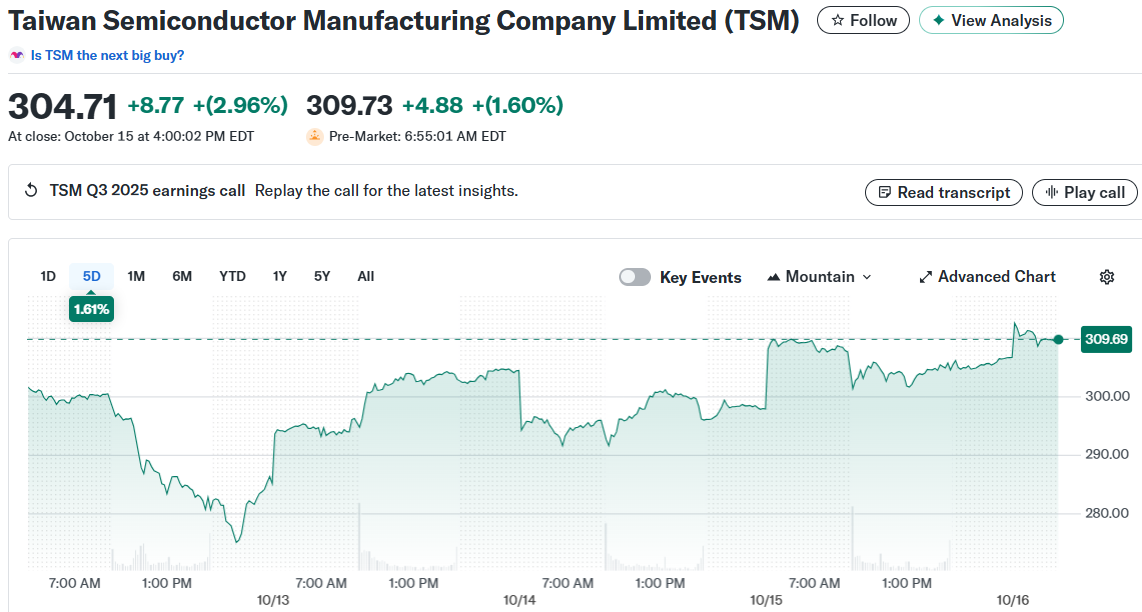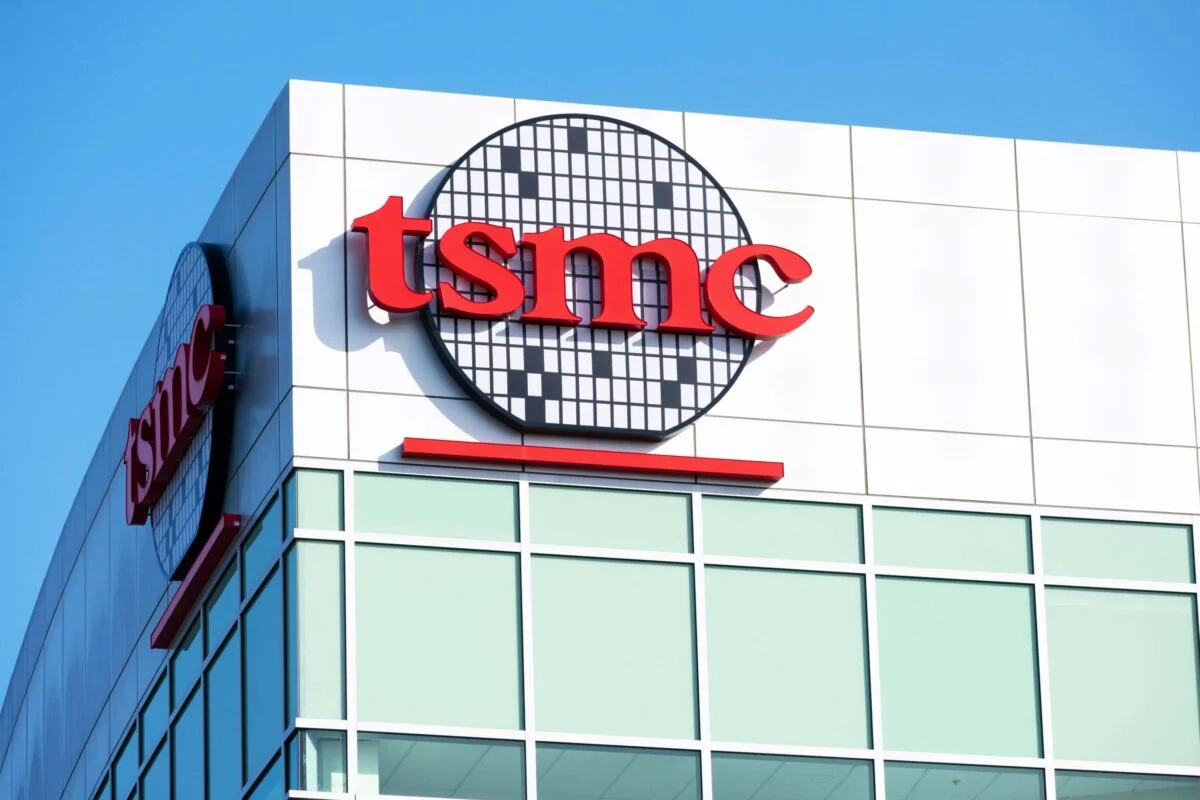TLDR
- TSMC raised its 2025 revenue growth outlook to mid-30% range, marking the second increase this year after boosting guidance just three months ago.
- The company reported third-quarter net profit of NT$452.3 billion ($14.8 billion), a 39% jump that beat analyst expectations.
- TSMC increased its minimum capital spending target for 2025 to $40 billion, up from $38 billion previously.
- CEO C.C. Wei stated AI demand is “stronger than we thought three months ago” and will compensate for lost business from US sanctions on China.
- The company expects AI-related chip revenue to double in 2025 and grow at a mid-40% annual rate for the next five years.
TSMC just told investors the AI boom is real, and they’re betting billions on it.
The world’s largest contract chipmaker raised its 2025 revenue growth forecast to the mid-30% range. That’s the second time this year they’ve upped their outlook. They last raised guidance only three months ago, which sparked a rally adding over $260 billion to the company’s market value.
The Taiwan-based manufacturer reported third-quarter net profit of NT$452.3 billion ($14.8 billion). That’s a 39% increase from the same period last year. The number beat analyst expectations of NT$410.58 billion.
Revenue climbed 30% to NT$989.92 billion in the quarter. In dollar terms, revenue hit $33.10 billion, up 41%. The difference comes from currency movements affecting the company’s reporting.

CEO C.C. Wei had a clear message for analysts during the earnings call. “Conviction in the AI megatrend is strengthening,” he said. “The AI demand actually continues to be very strong, stronger than we thought three months ago.”
Spending Big on Capacity
TSMC is putting money where its mouth is. The company raised the lower end of its capital spending target for 2025. They’re now planning to spend at least $40 billion on capacity expansion and upgrades, up from $38 billion previously.
The chipmaker expects AI-related chip revenue to double in 2025. Looking ahead, they project a mid-40% annual growth rate for AI chips over the next five years. That’s some serious optimism about the staying power of artificial intelligence demand.
TSMC manufactures chips for Nvidia, the leader in AI accelerators. They also produce processors for Apple iPhones, Qualcomm mobile chipsets, and AMD processors. Their client list reads like a who’s who of tech companies racing to build AI infrastructure.
China Concerns Take Back Seat
Wei acknowledged geopolitical challenges during the earnings call. US sanctions have started cutting off access to China, the world’s largest semiconductor market. Beijing has imposed curbs on rare-earth mineral exports in response.
But the CEO argued AI demand would make up for lost Chinese business. Bloomberg Intelligence analyst Matthew Bloxham noted the company’s optimism. “They seem very optimistic that even without China, there’s very robust demand for their platforms,” he said.
Some analysts have raised concerns about potential AI investment bubbles. They point to deals like OpenAI’s financing arrangement with Nvidia as examples of circular funding. TSMC dismissed these worries.
The company stays in constant contact with customers to map out future demand. This helps them plan capacity expansion. CFO Wendell Huang said in a statement that fourth-quarter business should be “supported by continued strong demand for our leading-edge process technologies.”
TSMC’s American depositary receipts rose 2.2% in premarket trading. The stock has climbed 54% this year through Wednesday’s close. The rally reflects investor confidence in the AI spending cycle.
Bloomberg Intelligence analysts believe TSMC’s dominance in advanced processing nodes gives them pricing power. They suggest the company could raise prices for its 2-nanometer and 3-nanometer nodes by 5-10% in 2026. Given the strong demand, customers might have little choice but to accept higher costs.
Fourth-quarter revenue is expected to land between $32.2 billion and $33.4 billion. That guidance suggests momentum will carry into the end of the year.





